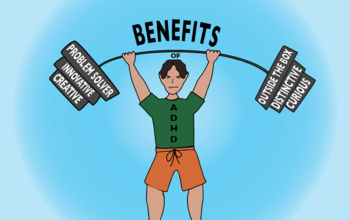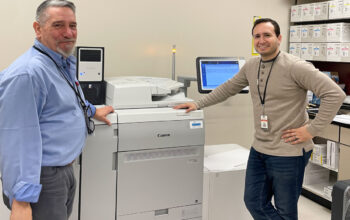Drew Davis, Features Editor
@ddaviscourant
Students briefly rifle through the new edition of the New Canaan Advertiser and scan its pages if for nothing more than to see if one of their friends is pictured on the cover of the sports section. However, for some, the weekly paper brings anxiety as they search the print to see if the details of their recent arrest have been reported.
While the police blotter may seem like emotionless blurbs detailing recent events, for those featured, it is not such light reading. Browsing through the same article their family and friends will read, memories of their arrest flood back and for some those same images will stay with them into adulthood. According to Quinn*, a junior who got involved with the police after hosting a party where minors were in the presence of alcohol, one particular scene will stay with him because it reminds him of how his actions impacted the lives of others. “I won’t forget the moment I walked upstairs with the police and saw my friends sitting in the living room,” they said. “I was thinking ‘What have I done? These kids are innocent and and this is going to screw them over.’ I felt awful because I felt like I messed up so much for them.”
Crimes and Punishments
Alcohol is one of the more common causes for juvenile arrests. According to Greenwich Magazine, New Canaan has the second highest rate of underage drinking in Connecticut. With rates this high, it is not rare to see headlines about high school drinking as well as marijuana possession and other juvenile cases.
The definition of the term ‘arrest’ is often misunderstood. Contrary to popular belief, a teen does not have to be taken into custody or handcuffed in order to be arrested. These precautions are reserved for situations in which subjects are in imminent danger. “Arrest is a broad term that encompasses any situation in which someone is seized and their freedom to leave is taken away,” New Canaan High School Resource Officer Jason Kim said. “A person can also be detained for a reasonable amount of time when an investigation is going on, which is called an investigative detention or a ‘Terry Stop’. In a Terry Stop, if the officer finds no reason to keep you from leaving after investigation, the suspect is free to leave.”
According Officer Kim, arrest is a broad term that encompasses any situation in which someone feels like they may not leave for any reason.
In rare situations where the officer feels there is a risk of imminent danger or there is a chance of the juvenile fleeing the scene, Officer Kim said officers will bring the juvenile to the police station’s youth office. Once in the office, they will be detained for a maximum of six hours. If the time has elapsed without a parent showing or the situation changing, the police department is required to present the case to the judge at the Bridgeport Juvenile Detention Center in order to further detain the juvenile, Sergeant Marc DeFelice from the investigative section of the New Canaan Police Department‘s youth division said.
Most of the crimes committed by juveniles in New Canaan relate to motor vehicle violations or possession of alcohol or drugs and do not involve the process stated above. Sergeant DeFelice said that for car incidents, licensed 16 and 17 year olds are treated as an adults. The typical punishment is a ticket with a fine. Similarly, possession of alcohol by a minor results in a ticket with a fine payable by mail. However, if one is charged with distributing alcohol to minors or possessing marijuana, the juvenile is issued a summons. A summons is a ticket that represents the teen’s “Promise to Appear” (PTA) in court, typically in Stamford.
When a case is presented to a judge, the verdict varies depending on the severity of the crime. For drug and alcohol cases a common decision is to put the adolescent on probation. Sergeant DeFelice said probationary terms are specific to each individual but can require random drug tests, consistent attendance in school or mandatory presence in information and awareness sessions for substance abuse. “There is an emphasis with drug related or alcohol related charges to educate the juvenile about the danger of consuming alcohol or drugs,” Sergeant DeFelice said. “It’s a way to give someone a second chance but also to assure that they don’t do it again.”
Courtrooms can sometimes be avoided for minor crimes or juvenile possession of alcohol. According to Officer Kim and Sergeant DeFelice, recently diversionary court rooms have been used to keep juveniles out of the court system. One option which is gaining popularity is a peer jury. In a peer jury teens around the same age as the juvenile meet and decide the punishment. The retribution can range from community service to writing an apology letter to the victim.
Sergeant DeFelice thinks that the diversionary programs,which keep teens out of the court system, are helpful to the juvenile and the peers involved. “I think is is very beneficial because both the people who committed the crime and the kids on the jury gain experience from it,” he said. “It gives peers the opportunity to make a hard decision as to what to do with a person who is their age.”
Teens and Police- Oil and Water?
With diversionary programs growing in popularity, teens’ exposure to the courtroom may decrease, but their interaction with police officers will not.
For most juveniles, their initial reaction to the seeing neon blue and red lights is fear. “I’m scared of the police,” senior Alex* said. “If I drive too fast I know I’m going to get a speeding ticket but if there is marijuana in the car I’m going to be nervous because you never know what they will do.”
Junior Quinn’s* first impression of the police was that they were aggressive. “When the police walked onto the scene they acted like we were terrible people and that we were wasting their time,” they said. “One of them actually said, ‘I have much better things that I could be doing than busting drinking parties.’”
Along with their seemingly threatening demeanor Alex* feels that the officers have been condescending towards him. “They are like ‘legal bullies’,” they said. “The officer that I interacted with was really disrespectful and he wasn’t taking it seriously at all. He was laughing at everything I said even if I was being truthful.”
Senior Taylor* who was involved in a searched automobile incident is similarly dismayed by how they was treated by the police. “When I rode in the police car to the station, the officer was trying to be jokingly funny with me but when I joked back I was instantly shut down which was kind of weird,” they said.
When teenagers comply with the police, in some cases, they may be treated less harshly. “I was cooperative and told them everything that happened,” Quinn* said. “It made them loosen up to know that we were honest kids and that we weren’t posing any problems to them.”
Meanwhile, others struggled to tell their story to the police who refused to believe what they were hearing. “I was telling them the truth and being honest,” Alex said. “They didn’t necessarily believe me and they laughed in my face.”
Despite the officers seemingly negative portrayals, Sergeant DeFelice believes that the patrol officers on the street treat everyone in a proper manner during these potentially confrontational interactions. “I have faith that all our officers do the right thing and that they treat everyone with the utmost respect,” he said. “Our police department is a nationally accredited law enforcement agency and all of our officers are true professionals.”
Officer Kim similarly attributes officer’s unfavorable reputations to the stressful nature of the situation. “When you are being arrested it’s traumatic and when you are in a traumatic situation you only focus on a few things,” he said. “Imagine what your mind would be going through if you were getting arrested. Even when just getting stopped by a police car your adrenaline goes up, your heart starts racing, you start forgetting things, you shake and when you are in that state of mind you only focus on the negatives.”
While some individuals are remorseful, others feel that their actions are not deserving of the given consequences. “I feel like I didn’t do anything wrong.” Alex* said. “I smoke weed, but if my mom says it’s alright, I think the police should say it’s alright, but that’s not going to happen anytime soon.”
Even after the adolescent has lived past the punishment and is off probation, the lasting repercussions affect the juvenile’s personal life. “Overall the most difficult part of the process was having all my family read the newspaper and having them be extremely disappointed in me,” Taylor* said. “The fact that it was in the newspaper and was broadcasted was hard.”
The police’s desired outcome is not to strictly admonish the adolescents but rather to teach them a lesson so they don’t continue illegal habits into adulthood. “Hopefully they learn a lesson while they are young so that when they go off to college and try to grow up and get a job they have learned their lesson,” Sergeant DeFelice said.
*Name has been changed



